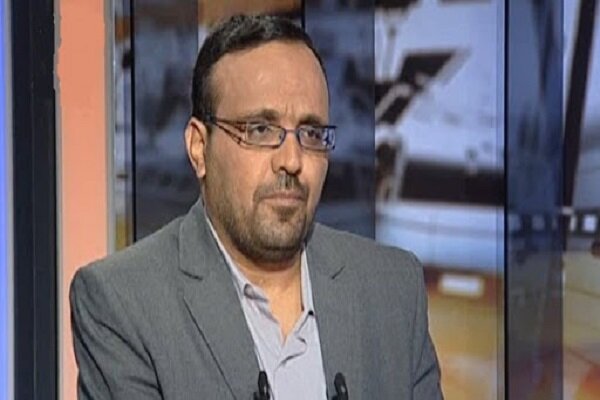By Mohammad Mazhari

TEHRAN – A Yemeni analyst says that the missile strike on Aramco by Yemenis is meant to send a signal that Ansarullah can hit targets inside Israel. Hamid Rizq, a Yemeni journalist and analyst based in Lebanon, tells the Tehran Times that Tel Aviv considers the Saudi-led aggression on Yemen a “preemptive war”.
According to Rizq, Israelis have “serious concerns about the possibility of the Yemeni army carrying out ballistic strikes that hit important areas within the Zionist regime.”
The following is the text of the interview:
Q: How do you see the repercussions of the recent missile attack on the Saudi Aramco in Jeddah? What does this mean for Saudi Arabia?
A: The missile strike on the Aramco site in the city of Jeddah represents a painful blow to the Saudi regime. The target and timing were chosen with high accuracy. In fact, Jeddah is the economic and commercial capital of Saudi Arabia.
The Quds 2 missile could target its specified goals which highlight the Saudi military and security deficit and failure in providing the protection needed for the most important vital facilities, especially after the Yemeni strikes on Abqaiq and Khurais last year.
The Saudi regime was supposed to have learned the lesson and succeeded at the minimum in securing Aramco and its branches within the Saudi territory.
So, the Yemeni strike in Jeddah revealed Saudi Arabia’s failure in terms of military and security protection. The strike also confirmed the lies of the Saudi media when it claims the ability of Saudi air defense to counter Yemeni missiles and drones.
Politically, the strike on Aramco in Jeddah undermined the results of the G20 summit hosted by Saudi Arabia. While it was hoped Saudi Arabia would invest in media to cover the summit, the Yemeni strike changed the balance against bin Salman and became the most important and prominent event in the international media.
The ballistic strike also conveyed the message of the Yemeni people to the Israeli enemy, since the timing coincided with the conclusion of the summit that brought together the Israeli prime minister, Netanyahu, with Muhammad bin Salman, and U.S. Secretary of State Mike Pompeo.
Q: What are the achievements of the Saudi-led coalition in Yemen?
A: The Saudi-American coalition has failed miserably in Yemen, and what it has achieved is nothing but the systematic destruction of the infrastructure and killing civilians and committing massacres against them over a period of six years.
The coalition was a treacherous stab in the back of the Yemenis. However, the coalition just occupied a few parts of Yemen. But this does not mean that they succeeded in presenting a model or establishing a successful experience in the occupied territories.
The Saudi-led coalition, which is supported by Israel and the U.S., opened the door of hell to itself which cannot avoid its consequences, and this will affect the Saudi regime in the future.
Q: How do you assess the power of the Yemeni resistance movement?
A: The Yemeni resistance, besides its army and the popular committees, continues to accumulate factors of strength and teach the enemy harsh lessons.
The steady progress in manufacturing ballistic missiles and drones, that constantly target Saudi Arabia, are just the beginning.
Q: What is your analysis of the human rights record of the Saudis in Yemen?
A: A dark and criminal record that is shedding the blood of children and women and besieges more than twenty million Yemenis and denies them the right to medicine and healthcare.
Q: What is the role of the U.S. in undermining the efforts to establish peach in Yemen?
A: For us in Yemen what is happening is American-Israeli aggression in the first place; and the Saudi and Emirati regimes are just Arab tools that aim to push them to be at the forefront of the aggression, while the actual and fundamental agenda and goals are to confront and undermine the Yemeni revolution led by Mr. Abdul-Malik Al-Houthi.
American experts as well as the Zionists participate in the operation rooms of the Saudi-led coalition. The Israeli weapons are used to kill the sons of Yemen while the Zionist leaders have more than once expressed their concern that Ansarullah will not be defeated in Yemen.
The Israelis consider the Saudi aggression (on Yemen) a preemptive war, as they have serious concerns about the possibility of the Yemeni army carrying out ballistic strikes that hit important areas within the Zionist regime.

No comments:
Post a Comment